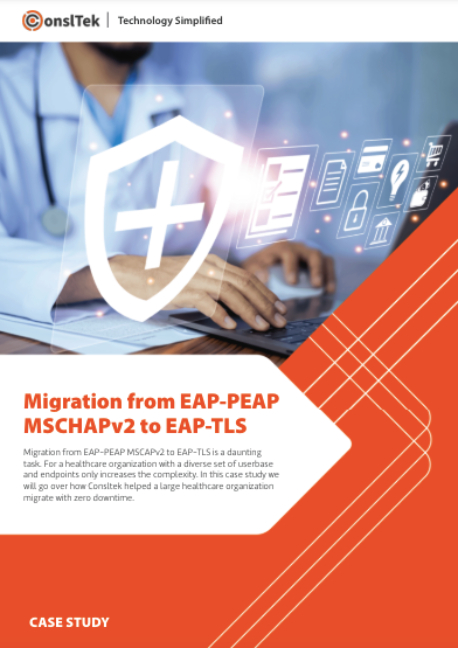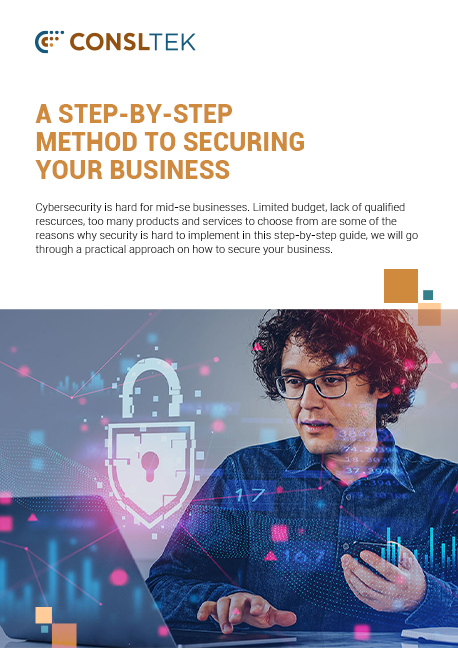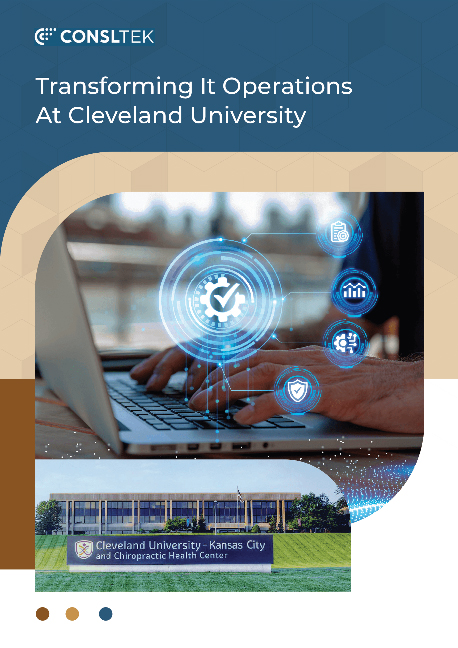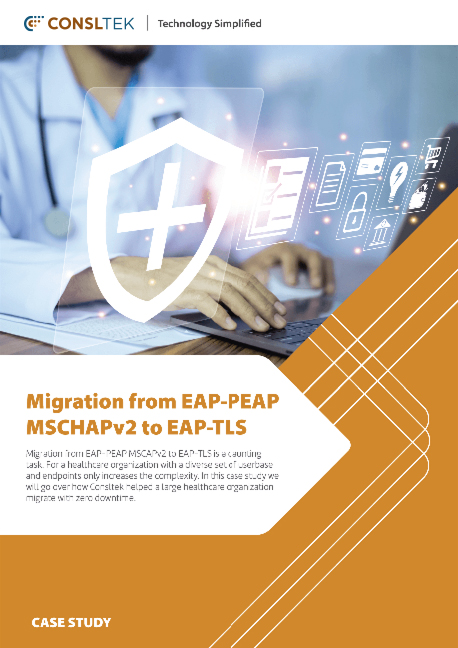Guide to SASE Vendors 2024
In an era where digital transformation is driving businesses to adopt more cloud-based applications, Secure Access Service Edge (SASE) has emerged as a critical technology framework. It combines networking and security into a unified, cloud-delivered service. SASE solves challenges such as securing remote workforces, managing data protection in cloud environments, and ensuring optimized network performance across multiple locations.
While the adoption of SASE by enterprises is well-documented, mid-sized businesses—often grappling with limited IT budgets and a lack of internal expertise—are increasingly finding value in this model. This guide aims to help mid-sized organizations across industries select the right SASE vendor for their specific needs, balancing security, cost-efficiency, and network performance.
As you navigate the SASE vendor landscape, it’s important to understand that each category of vendor offers unique benefits and trade-offs. This guide categorizes vendors into four distinct groups—traditional appliance-based vendors, cloud-native security vendors, ground-up SASE vendors, and hybrid SASE vendors—and explores which might be the best fit for mid-sized businesses.
Traditional Appliance-Based Vendors
Overview
Traditional appliance-based vendors, such as Cisco, Fortinet, and Palo Alto Networks, have long dominated the networking space. As SASE continues to evolve, these vendors are transforming their hardware-driven solutions into more integrated, cloud-compatible services. They achieve this by incorporating features like SD-WAN, cloud security, and advanced threat detection.
Technology & Architecture
Appliance-based vendors typically operate by adapting their existing infrastructure to meet the demands of the SASE framework. For example, Cisco’s SD-WAN platform integrates Umbrella security services, offering an efficient hybrid model for businesses already heavily invested in Cisco’s network infrastructure.
From a technical standpoint, traditional appliance-based SASE solutions usually involve a combination of on-premise hardware, such as firewalls and routers, with cloud-managed services. This hybrid model appeals to businesses that still maintain on-premise data centers but want to extend security to their cloud infrastructure.
Case Study: Financial Services Firm
A mid-sized financial services firm, with a long history of using Cisco’s network infrastructure, began shifting to the cloud to accommodate remote workforces and SaaS applications. However, the company faced security risks, especially around the use of VPNs for remote access. By deploying Cisco’s Umbrella security suite integrated with SD-WAN, the firm not only extended secure access to all cloud apps but also achieved greater visibility over their network traffic.
Advantages
- Seamless integration with existing networks: If your business already uses solutions from Cisco or Fortinet, adding SASE functionality can be more seamless and require fewer drastic changes.
- Legacy networking expertise: Vendors like Palo Alto and Fortinet have decades of experience in network management, providing reliable and tested solutions for organizations with robust networking needs.
- Comprehensive security suites: Traditional appliance vendors have extensive security capabilities, from Next-Generation Firewalls (NGFW) to Intrusion Prevention Systems (IPS), that have been expanded into SASE offerings.
Challenges
- High cost: Implementing traditional appliance-based solutions can be expensive, particularly when considering hardware maintenance and licensing fees.
- Complex management: For businesses looking for simplicity, managing a hybrid of on-premise and cloud services might require a dedicated IT team.
- Delayed agility: Traditional vendors may struggle to provide the same level of agility in updates, compared to cloud-native competitors.
 Cloud-Native Security Vendors
Cloud-Native Security Vendors
Overview
Cloud-native vendors like Zscaler and Netskope were born in the cloud and designed to provide security as a service (SaaS). Their solutions are entirely cloud-delivered, offering scalability, flexibility, and ease of deployment for businesses of all sizes. These vendors focus on the security aspects of SASE, offering a broad array of services like secure web gateways (SWG), cloud access security brokers (CASB), and Zero Trust Network Access (ZTNA).
Technology & Architecture
Cloud-native vendors operate without any dependency on hardware. Their platforms deliver secure connections directly through the cloud, leveraging global points of presence (PoPs) for optimized traffic routing and security. Zscaler, for instance, operates a globally distributed platform that ensures low-latency access to SaaS applications, providing enhanced performance and security for remote workers.
ZTNA, which replaces the need for traditional VPNs, allows businesses to enforce identity-based access controls, ensuring users only access the applications they are authorized for. The cloud-native approach to SASE also means that businesses can scale up or down rapidly, which is especially useful for growing mid-sized businesses.
 Case Study: E-Commerce Business
Case Study: E-Commerce Business
A growing e-commerce company with offices spread across multiple countries found its existing VPN solution was inefficient and slow, hampering remote employee productivity. By adopting Zscaler’s ZTNA solution, the company eliminated the need for legacy VPNs and established direct, secure access to cloud-hosted applications. This resulted in a 30% increase in productivity and significant cost savings on network infrastructure.
Advantages
- Faster deployment: Cloud-native vendors can deploy solutions quickly without the need for hardware, making them ideal for fast-growing businesses.
- Cost-effective: Businesses save on capital expenditure since there is no need for physical hardware; you pay only for the services you use.
- Global scalability: Cloud-native platforms offer a global network of PoPs that ensure low-latency, high-performance connectivity for users regardless of location.
Challenges
- Vendor lock-in: Once an organization adopts a cloud-native vendor’s ecosystem, it can be challenging to switch due to the integration of various services.
- Limited networking expertise: Cloud-native vendors may lack the depth of networking expertise compared to appliance-based vendors, focusing more on security aspects.
Ground-Up SASE Vendors
Overview
Ground-up SASE vendors like Cato Networks have designed their entire platform from scratch with the SASE framework in mind. This category represents the most holistic approach to SASE, where both networking and security are integrated into a single, cloud-native platform. These vendors have no legacy networking or security infrastructure to integrate, allowing them to build a fully cohesive service.
Technology & Architecture
Ground-up vendors have a distinct advantage over traditional and cloud-native vendors because they offer a tightly integrated solution that combines SD-WAN, ZTNA, FWaaS (Firewall-as-a-Service), and cloud access security in a unified platform. Cato Networks, for example, delivers all network security and optimization services from its global private backbone, bypassing the public internet for more reliable, low-latency connections.
With this approach, businesses do not need to juggle multiple vendors or solutions. Everything is managed through a single platform, reducing the complexity of deployment, monitoring, and scaling security.
Case Study: Healthcare Organization
A mid-sized healthcare provider with several clinics across multiple states struggled with securing patient data and maintaining compliance with healthcare regulations. By deploying Cato Networks’ ground-up SASE solution, the provider was able to securely connect all of its clinics and remote workers, ensuring encrypted data transmission and enhanced network performance. The platform also enabled centralized management of security policies across all sites, simplifying compliance with healthcare regulations like HIPAA.
Advantages
- Fully integrated solution: Ground-up SASE platforms combine both network and security services into a single, cohesive system.
- Simplified management: Organizations benefit from managing both security and networking through a single pane of glass.
- Agility: Ground-up vendors are typically faster at adapting to new threats and challenges due to their cohesive, cloud-native architecture.
Challenges
- Niche players: Some ground-up vendors may have limited global reach or market presence compared to larger, more established competitors.
- All-in-one limitation: While offering comprehensive solutions, some businesses might find less room for customization with ground-up vendors, especially if specific networking or security needs arise that are outside the vendor’s scope.
Hybrid SASE Vendors
Overview
Hybrid SASE vendors offer a blend of appliance-based and cloud-native solutions, providing businesses with flexibility when managing their network and security infrastructure. Versa Networks and Fortinet are prime examples of hybrid SASE vendors, offering both on-premise security appliances and cloud-based services.
Technology & Architecture
Hybrid vendors typically offer robust on-premise hardware, such as next-generation firewalls, combined with cloud-based services like SD-WAN, ZTNA, and CASB. This model appeals to organizations that are transitioning from on-premise data centers to a cloud-first approach but need to maintain some level of legacy infrastructure.
Hybrid solutions allow businesses to take advantage of the cloud’s scalability and agility without completely abandoning their on-premise security investments. This is particularly valuable for industries that rely on strict regulatory compliance, such as finance and manufacturing, where on-premise infrastructure is still a requirement.
Case Study: Manufacturing Company
A mid-sized manufacturing company with several production facilities and remote offices faced the challenge of integrating legacy systems with modern cloud applications. By adopting Versa Networks’ hybrid SASE solution, the company was able to implement a mix of on-premise firewalls and SD-WAN services, ensuring secure communication between its production facilities and cloud-hosted ERP systems. This hybrid model allowed the company to maintain critical legacy infrastructure while modernizing its network and security.
Advantages
- Flexibility: Hybrid vendors allow businesses to deploy a mix of on-premise and cloud-based services, providing greater flexibility in transitioning to a full cloud-based architecture.
- Easier integration: Hybrid solutions facilitate the integration of existing security appliances with new cloud services, making it easier for businesses to adopt SASE without the need for a complete overhaul of their infrastructure.
- Control over sensitive data: Organizations that handle sensitive information can maintain certain data on-premise, reducing compliance risks while leveraging cloud capabilities for less sensitive applications.
Challenges
- Complex management: Hybrid environments can introduce complexity in management and policy enforcement, as businesses must navigate both on-premise and cloud solutions.
- Potential for performance bottlenecks: Depending on the architecture, relying on both on-premise and cloud solutions may lead to performance issues if not properly optimized.
- Balancing costs: Managing costs can be challenging in hybrid environments, as organizations must account for ongoing hardware maintenance and cloud service subscriptions.
What’s The SASE Vendor Verdict For Mid-Sized Businesses?
Selecting the right SASE vendor involves understanding your organization’s unique needs, goals, and existing infrastructure. Mid-sized businesses often face challenges distinct from larger enterprises, including budget constraints, limited IT resources, and the necessity for scalable solutions that can adapt as they grow.
- Assess Your Current Infrastructure: Evaluate the existing security and network infrastructure to determine which SASE vendor aligns with your business goals. Traditional appliance vendors may suit businesses with established hardware investments, while cloud-native vendors may appeal to those prioritizing quick deployment and cost-effectiveness.
- Evaluate Security Needs: Consider the specific security requirements of your organization, especially if you handle sensitive data or are subject to regulatory compliance. Ground-up SASE vendors may offer the most comprehensive security solutions, while hybrid vendors provide flexibility in transitioning to the cloud.
- Consider Future Growth: As mid-sized businesses scale, the chosen SASE vendor should offer flexibility and the ability to scale up services without significant investment. Cloud-native and ground-up vendors typically excel in this area due to their inherent scalability.
- Budget Constraints: Budget is always a factor. Understand the total cost of ownership, including ongoing subscription fees, hardware maintenance, and potential costs associated with transitioning to a new vendor. Cloud-native solutions often provide more predictable expenses compared to traditional hardware-based vendors.
- Support and Expertise: Evaluate the level of support provided by each vendor, as well as their reputation in the market. Some organizations may require extensive support and expertise, especially during the transition phase. Choosing a vendor with a strong customer service reputation can ease the burden on your internal IT team.
Key Takeaways: Your Ultimate Guide to Navigating the SASE Vendor Landscape
- SASE is an essential framework for mid-sized businesses looking to streamline their network and security operations while adapting to the demands of a digital-first world.
- Vendor selection should be based on unique needs: Traditional appliance-based, cloud-native, ground-up, and hybrid vendors all offer different benefits and challenges. Businesses must assess their current infrastructure, security needs, future growth plans, and budget constraints to determine the best fit.
- Focus on security and performance: Security should be a top priority when evaluating SASE vendors, especially in industries where compliance is critical. Look for solutions that offer robust security features while also ensuring optimal network performance.
- Leverage vendor expertise: Choose a vendor with a solid track record in supporting mid-sized businesses and one that offers comprehensive training and support resources to help ease the transition.
- Plan for scalability: As your organization grows, ensure the SASE solution you choose can scale with your needs, adapting to changes in traffic patterns, new applications, and emerging security threats.
Looking for SASE Implementation Services?
Navigating the SASE vendor landscape can be daunting, but you don’t have to go it alone. Partnering with a trusted expert in managed services can make the process smoother and more efficient. At Consltek, we specialize in helping mid-sized businesses implement SASE solutions tailored to their specific needs, ensuring a seamless transition and optimal security for your organization.
Get in touch with us today to learn more about our SASE implementation services and how we can help you leverage this transformative framework to secure your digital transformation journey.




